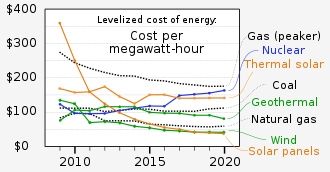Optimal hypothesis decisions and the trade‐off between working cost and capital cost administrative systems that make total allowed wages liberated from the affiliation’s lead give spurring powers Houston Electricity Rates to amount to cost minimization and as such brief wholesalers to pick the best hypothesis way and extent among working and capital expenses.
Benchmarking in earnings

As analyzed in the past portion, benchmarking is a strategy for making allowed earnings dependably liberated from each organization’s cost. Subsequently, given the prerequisites to its compelling execution hold, benchmarking gives impulses to traders to go with the ideal hypothesis decision and select the capable Opex/Capex extent. With the other choice “building block” approach, executed in commonly European countries, allowed earnings are set for a multi‐year managerial period, close to the start of there’s nothing more to it. Driving forces to cost minimization result from the independence of allowed salaries from the organization’s certified cost during the managerial period.
A couple of components of this model, in any case, may decrease its inspiration power. First and foremost, predetermination of allowed salaries is usually established on the distributer’s proposed cash development technique, which the regulator positively authorizes close to the beginning of the managerial period by allowing recovery of its generally expected cost during the authoritative period. In different terms allowed wages are not liberated from the hypothesis decision, and their regulator is unequivocally connected with such decision.
Primary hypothesis framework
During the regulatory period, the vendor could and would have the impulse to pull out from the primary hypothesis framework – including the CAPEX/OPEX extent – for a less expensive choice, if one existed. This is what is happening since the less expensive framework would allow the dealer to take advantage of the destined allowed livelihoods that were figured considering the more costly procedure, until the accompanying expense review. In any case, concerning repeated participation with the regulator, we would guess that this is presumably not going to happen, as it might be unraveled, for example as proof that:
- The firm secret the more capable hypothesis decision at the pay setting stage, or
- The firm is delaying significant hypotheses to procure benefits briefly, while consequences of such deferral on, the express, nature of the organization, will show up in what the future holds. This holds to the point that paw back of expense salaries is executed in certain countries in case the vendor doesn’t grasp organized adventure. A couple of measures are consistently gotten up positioned to limit the bet that contributed capital turns out to be under‐remunerated. These components might diminish, eventually, the limit of the pay setting frameworks to drive the organization’s endeavor decisions, and accordingly the CAPEX/OPEX extent assurance. Second, the limit of the pay setting parts to provoke capable hypothesis decisions is likely going to be reduced by the confined length of the managerial period. For illustrative purposes, consider a system considering a pre‐determined full-scale pay cap, possibly dependent upon a couple of result factors. Under this arrangement, during the managerial period earnings are liberated from complete genuine cost. The distributor needs to convey the outcomes agreed with the regulator and bear the looking at cost, in kind for the pre‐determined earnings. Subsequently, the vendor’s advantage in growing technique contains in restricting hard and fast expenses. In any case, to give the right endeavor persuading powers, the regulatory period should be somewhat as long as the time‐ horizon is relevant for the shipper’s endeavor assessment.

